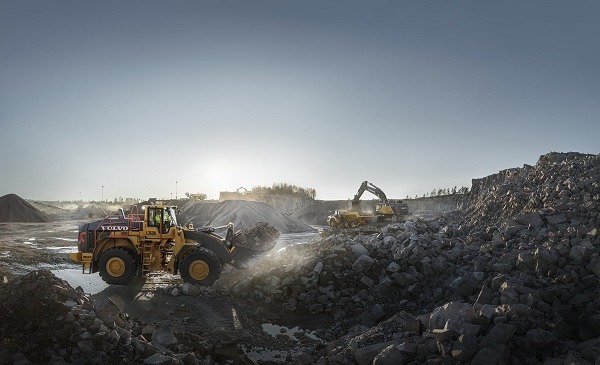How The Rental Of Heavy Equipment Streamlines Operations To Empower Projects

The effective utilization of heavy equipment significantly influences the success of initiatives in the realm of construction and infrastructure development. Heavy equipment, including bulldozers, excavators, cranes, and loaders, is an integral component of construction processes. Its utilization guarantees the secure, efficient, and timely completion of tasks. For many construction companies, however, the expense of purchasing and maintaining such equipment may be unaffordable, particularly for lesser firms and contractors. Leasing services for heavy equipment provide a flexible and economical solution that enables endeavors of varying scales. This article will look at the ways that heavy equipment rentals can make construction projects successful and make operations easier.
Utilization Of An Extensive Fleet Of Equipment
One of the principal advantages associated with heavy equipment rental is the provision of access to a wide variety of machinery and equipment. Rental companies uphold vast fleets of equipment comprising an assortment of makes, models, and sizes in order to fulfil the requirements of diverse projects and applications. Leverage trucks for transporting debris, excavators for excavating foundations, and cranes for lifting large materials are just a few examples of equipment rental services that cater to the general public. The provision of accessibility enables construction firms to select the most suitable equipment for a given task, circumventing the financial strain associated with acquiring and up keeping numerous machinery units.
Economical And Financial Adaptability
In contrast to the outright purchase of equipment, heavy equipment rental provides substantial financial benefits, rendering it an appealing alternative for construction firms seeking to reduce capital expenditure. By leasing equipment on an as-needed basis, businesses can circumvent the substantial initial investments and recurring costs associated with equipment purchases, including storage, maintenance, and repairs. In contrast, rental fees are commonly organized according to duration (short-term or long-term), which affords organizations greater financial adaptability and facilitates more efficient resource allocation.
Productivity Enhancement and Decreased Downtime
An additional significant benefit of renting heavy equipment is the capacity to reduce operational interruptions and optimize efficiency at construction sites. Rental companies ensure that their equipment is routinely serviced, inspected, and maintained to the highest standards. Consequently, the utilization of rented equipment generally guarantees its optimal functionality, thereby mitigating the likelihood of malfunctions, failures, and subsequent delays. When equipment malfunctions or mechanical problems arise, rental companies provide technical assistance and responsive customer support, ensuring projects remain on schedule with timely resolutions.
Utilization Of Cutting-Edge Technology
Rental companies of heavy equipment invest in cutting-edge technologies and innovations to maintain market competitiveness and satisfy customers’ changing demands. Consequently, rental fleets frequently comprise cutting-edge machinery that is outfitted with sophisticated functionalities, capabilities, and safety mechanisms. Construction companies can acquire advanced technology without incurring initial expenses or making enduring obligations that are typical of equipment ownership by opting to rent contemporary equipment.
Flexibility And Scalability
The rental of heavy equipment provides construction companies with the ability to expand and modify their operations in response to shifting project demands, market circumstances, and business dynamics. In situations where a project undergoes unanticipated obstacles, expands in scope, or concludes prematurely, rental services offer the adaptability necessary to modify equipment requirements. Rental agreements can be modified in order to accommodate variations in demand, enabling organizations to adjust their capacity without facing financial repercussions or contractual limitations.
Conclusion
Heavy equipment rental in Denver is an indispensable component in facilitating construction endeavors through the optimization of processes, the infusion of effectiveness, and the promotion of triumph. Rental services facilitate resource optimization, productivity enhancement, and client satisfaction by furnishing construction firms with access to a varied fleet of equipment, implementing cost-effective solutions, reducing outages, and capitalizing on state-of-the-art technologies. By leveraging the scalability, flexibility, and support provided by rental services, construction firms can confidently undertake endeavors of any magnitude or intricacy, secure in the knowledge that they possess the necessary resources and equipment to achieve success.



